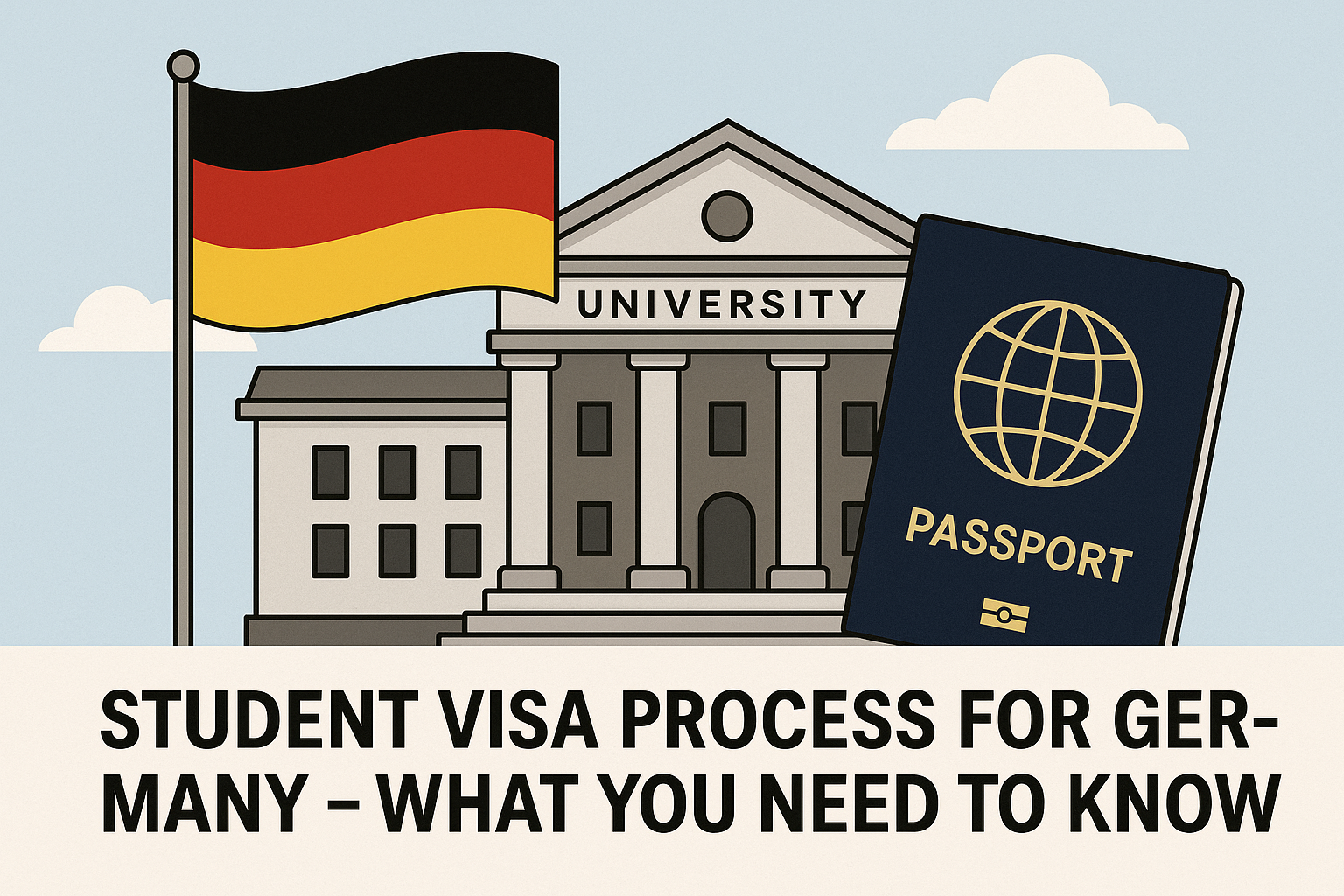
Thinking of studying in Germany? From world-class universities to affordable education, Germany is one of the top destinations for international students. But before packing your bags, understanding the student visa process is essential. This guide breaks it down step-by-step.
🛂 Types of Student Visas for Germany
Germany offers three main types of visas for students:
-
Student Applicant Visa (Visum zur Studienbewerbung)
For students who haven’t received admission yet but want to apply in person. -
Student Visa (Visum zu Studienzwecken)
For students who already have admission from a German university. -
Language Course Visa (Visa for Language Learning)
For those attending a language course for up to 1 year.📋 Step-by-Step Student Visa Process
1. Get Admission from a German University
Before you can apply for a visa, you must secure an admission letter from a recognized institution in Germany.
📄 Required Document:
-
University acceptance/admission letter
2. Open a Blocked Bank Account
You need proof that you can financially support yourself during your stay. In 2025, the required amount is approximately €11,208 for one year.
🔐 Tip: Use services like Fintiba, Expatrio, or Deutsche Bank.
3. Get Health Insurance
All students must have valid health insurance coverage. EU students can use EHIC, while non-EU students need to buy German public or private health insurance.
4. Gather Required Documents
✅ Checklist of essential documents:
-
Completed visa application form
-
Valid passport
-
Passport-size photos (biometric)
-
Proof of admission
-
Blocked account confirmation
-
Health insurance certificate
-
Academic certificates
-
Proof of language proficiency (German or English)
-
Visa fee payment confirmation (approx. €75)
5. Book Visa Appointment at the German Embassy
Visit the website of your local German embassy/consulate to schedule a visa appointment. Appointments are often booked weeks in advance, so plan early.
6. Attend the Visa Interview
📍Location: German Embassy or Consulate
🕓 Duration: 15–30 minutes
💬 Tip: Be ready to explain why you chose Germany, your course, and how you’ll fund your studies.7. Wait for the Decision
Visa processing time varies by country, usually between 4 to 12 weeks. Track your application online if the embassy provides a reference number.
⏳ When Should You Apply?
Apply at least 3 months before your intended travel date. Some German universities start in October (Winter Semester), so plan backward from that timeline.
💡 Bonus Tips for a Smooth Process
-
Start the process as soon as you receive your admission letter.
-
Keep multiple copies of all documents.
-
Double-check photo size requirements (they're strict!).
-
Learn a few basic German phrases – they might help during interviews.
Final Thoughts
Germany offers an amazing opportunity for international students — affordable tuition, rich culture, and world-class education. While the student visa process may seem overwhelming, it becomes manageable if broken into steps.
📚 So, get your documents ready, book your visa appointment, and take the first step toward your German academic adventure!
-
